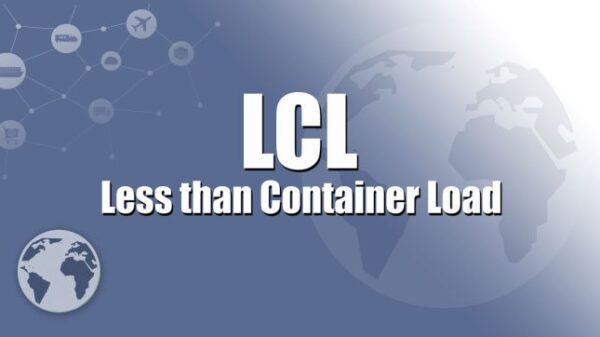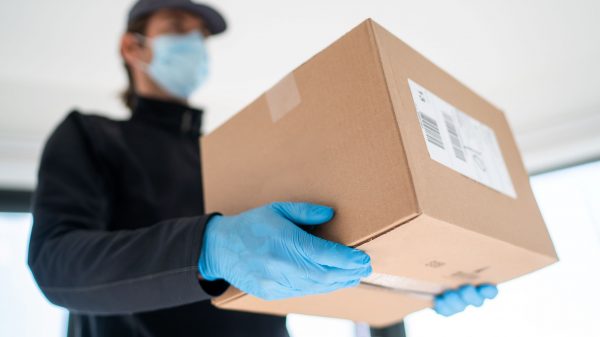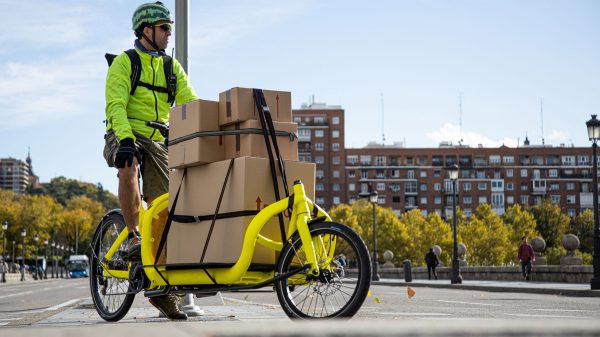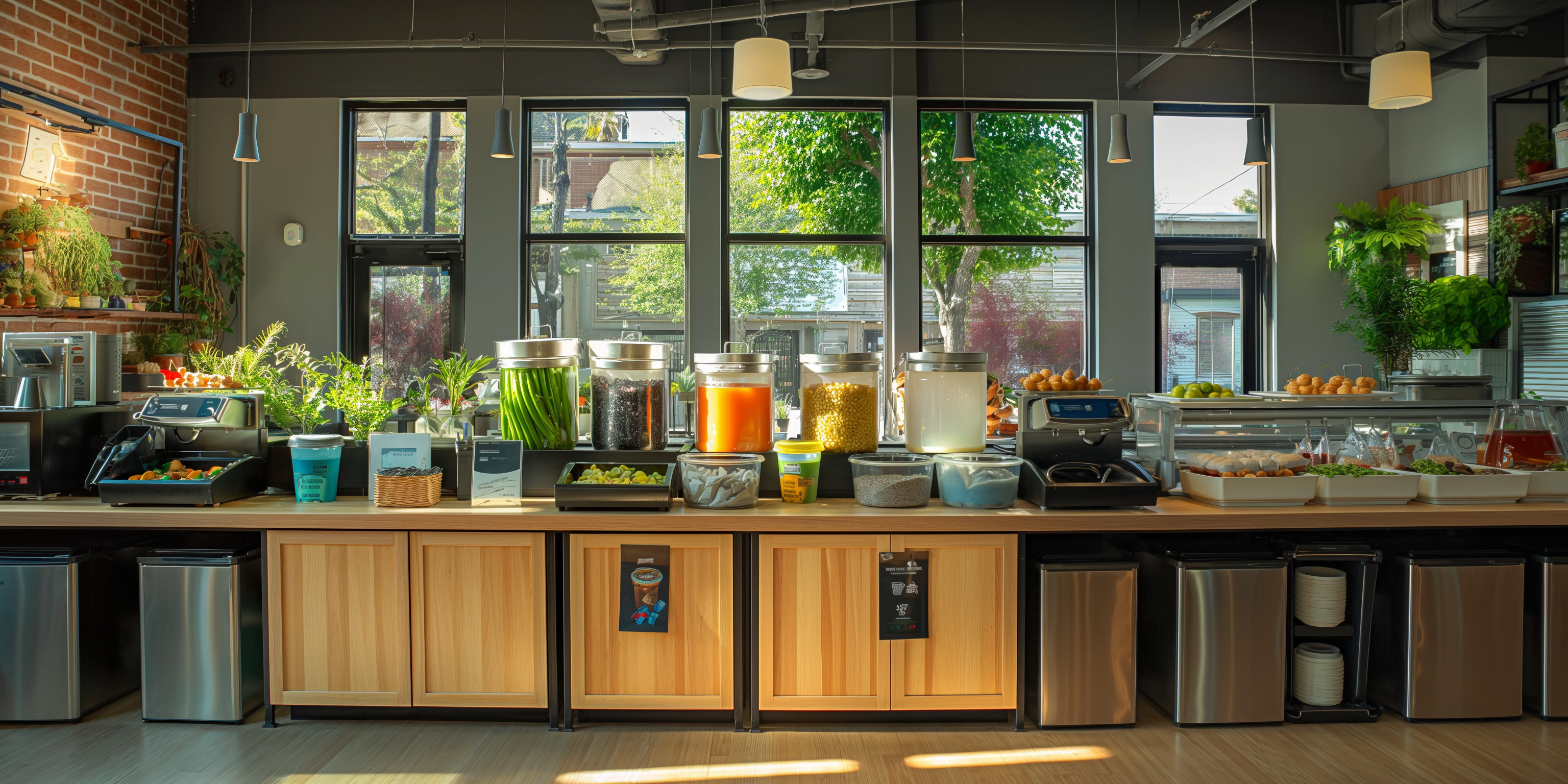Running a restaurant or cafe involves juggling multiple responsibilities, and waste management is one critical aspect that often goes unnoticed. Proper waste management is essential for maintaining cleanliness and hygiene, complying with regulations, and promoting sustainability.
This comprehensive guide will explore effective waste management practices that can help your establishment operate more efficiently and responsibly.
Understanding the Types of Waste

Effective waste management begins with understanding the different types of waste generated in a restaurant or cafe:
- Organic Waste: This includes food scraps, coffee grounds, and other biodegradable items. Organic waste constitutes a significant portion of waste in food service establishments. Efficient management of organic waste can lead to composting and other beneficial uses.
- Recyclable Waste: Items such as paper, cardboard, glass, plastic, and metals fall under this category. Proper sorting and recycling of these materials can significantly reduce the amount of waste sent to landfills, promoting a circular economy.
- General Waste: This includes non-recyclable items like certain plastics, broken glass, and other contaminants that cannot be recycled or composted. Proper disposal of general waste is essential to minimise environmental impact.
- Hazardous Waste: Chemicals, cleaning agents, batteries, and other potentially dangerous materials need special handling and disposal methods to ensure safety and compliance with regulations. Mishandling hazardous waste can lead to serious environmental and health issues.
Conducting a Waste Audit
To develop an effective waste management plan, start with a thorough waste audit:
- Inventory Waste: Identify all types of waste your establishment generates. This involves examining kitchen scraps, leftovers, packaging materials, and other waste. Keep a detailed record of the types and quantities of waste produced.
- Analyse Sources: Determine where the waste comes from, such as the kitchen, dining area, or storage room. This analysis helps pinpoint areas where waste reduction efforts can be most effective. For example, excessive food waste may indicate a need for better portion control or inventory management.
- Set Benchmarks: Establish baseline metrics for the volume and types of waste produced. These benchmarks will help measure progress and identify trends over time. Setting achievable goals can motivate staff and management to participate actively in waste reduction efforts.
Developing a Waste Management Plan
Once you have a clear understanding of your waste, create a comprehensive waste management plan:
- Waste Reduction Strategies: To minimise waste, implement portion control, menu planning, and efficient inventory management. Encourage the use of reusable containers and utensils to reduce disposable waste. Reducing waste at the source is the most effective way to manage waste.
- Recycling Programs: Set up recycling bins and educate staff on proper sorting. Ensure that recyclable materials are clean and free from contamination. Partner with local recycling facilities to ensure your recyclables are processed correctly.
- Composting: Establish a composting system for organic waste. Composting reduces waste and produces valuable compost that can be used for gardening or landscaping. If on-site composting is not feasible, engage local composting services.
- Donation Programs: Partner with local charities to donate surplus food. Many organisations accept edible, safe-to-eat food that would otherwise go to waste. This not only helps those in need but also reduces the amount of waste your establishment produces.
Implementing Waste Segregation
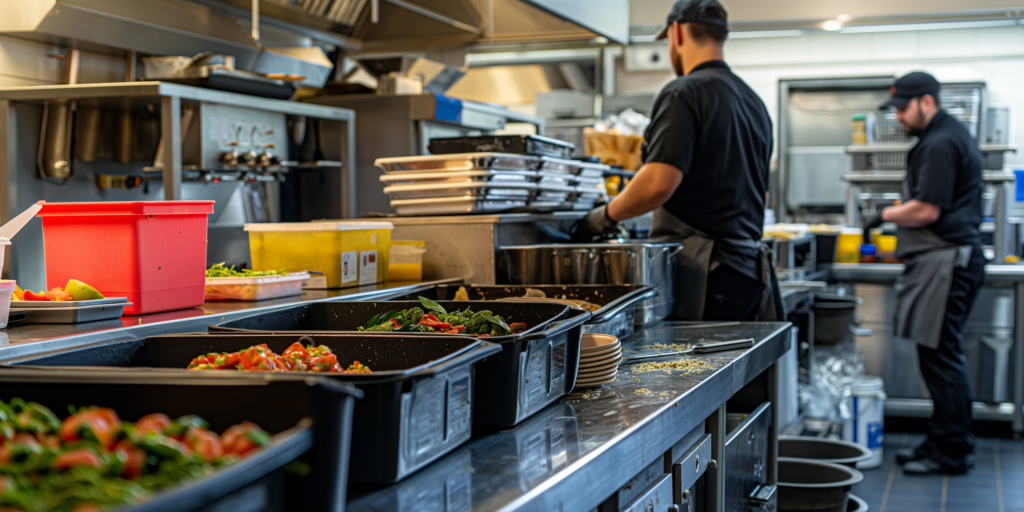
Proper waste segregation is crucial for effective waste management:
- Colour-Coded Bins: Use different coloured bins for each type of waste (e.g., green for organic, blue for recyclables). This makes it easier for staff and customers to dispose of waste correctly. Clear labelling and consistent bin placement are essential for successful waste segregation.
- Staff Training: Train employees on waste segregation practices. Regular training sessions ensure staff remain knowledgeable and committed to proper waste disposal. Involve staff in the planning process to gain their buy-in and understanding of the importance of waste management.
- Signage: Clear signs should be placed near waste disposal areas to guide staff and customers in proper disposal. Effective signage can significantly reduce contamination in recycling and compost bins. Visual aids and multilingual signs can enhance understanding and compliance.
Choosing the Right Waste Management Partners
Selecting reliable waste management partners is essential for successful waste disposal and recycling:
- Waste Haulers: Choose waste collection services that offer regular pickups and proper disposal methods. Ensure they are licensed and compliant with local regulations. Evaluate their environmental practices to ensure they align with your sustainability goals.
- Recycling Facilities: Partner with facilities that accept a wide range of recyclables. Confirm that they follow environmentally friendly recycling practices. Establish a good working relationship with your recycling partners to ensure smooth operations.
- Composting Services: If on-site composting is not feasible, engage local composting services that can handle your organic waste efficiently. Research and choose composting services that adhere to best practices and regulatory standards.
Monitoring and Reviewing
Continuous monitoring and reviewing of your waste management practices are crucial for ongoing improvement:
- Track Progress: Regularly measure waste volumes and compare them to your benchmarks. Tracking helps identify areas of success and those needing improvement. Use waste tracking software or simple spreadsheets to keep detailed records.
- Continuous Improvement: Use the data collected to refine and improve your waste management strategies. Implement new practices and adjust existing ones based on your findings. Encourage a culture of continuous improvement by recognising and rewarding staff efforts.
- Feedback Loop: Encourage feedback from staff and customers on waste management practices. This feedback can provide valuable insights and foster a culture of continuous improvement. Host regular meetings to discuss progress and challenges.
Regulatory Compliance
Staying compliant with local waste management regulations is non-negotiable:
- Local Regulations: Stay informed about local waste management regulations and ensure your practices align with them. Non-compliance can lead to fines and other penalties. Review regulations regularly to stay updated on any changes.
- Health and Safety: Follow health and safety guidelines related to waste handling and storage. Properly handling hazardous waste is particularly important to avoid accidents and health risks. Train staff on safe waste handling procedures and provide necessary protective equipment.
Community Engagement and Education

Engaging your community and educating your customers can enhance your waste management efforts:
- Customer Awareness: Educate customers about your waste management efforts and how they can contribute. Use signage, social media, and in-house communications to spread awareness. Transparent communication builds trust and encourages customer participation.
- Community Programs: Participate in or initiate community waste reduction programs. Collaborate with local organisations to promote sustainability initiatives. Your restaurant or cafe can become a leader in community-driven environmental efforts.
Advanced Waste Management Techniques
As your waste management practices mature, consider implementing advanced techniques:
- Waste-to-Energy Programs: Explore options for converting waste into energy. Technologies like anaerobic digestion can convert organic waste into biogas, a renewable energy source.
- Zero Waste Goals: Aim for zero waste by reducing, reusing, and recycling as much as possible. Zero waste is an ambitious goal but achievable with persistent effort and innovation.
- Green Certifications: Seek certifications such as LEED (Leadership in Energy and Environmental Design) or Green Seal, which recognise environmentally responsible practices. These certifications can enhance your establishment’s reputation and attract eco-conscious customers.
Case Study: Successful Waste Management
Let’s look at a real-world example of successful waste management:
The Green Bistro
The Green Bistro, a small cafe in Portland, Oregon, implemented a comprehensive waste management plan that drastically reduced its waste footprint. They started with a waste audit, identifying that 60% of their waste was organic and could be composted. They partnered with a local composting facility and set up a colour-coded bin system for easy waste segregation.
Staff received regular training on waste management, and clear signage was placed throughout the cafe. The Green Bistro also began donating surplus food to a local shelter, reducing food waste significantly.
The cafe tracked its waste management progress and regularly reviewed its practices. It set a goal to achieve zero waste within five years and is well on its way, with a current waste diversion rate of 85%.
By engaging customers through social media and in-house communication, The Green Bistro has built a strong community of supporters who appreciate their sustainability efforts. Their story is a testament to the impact of effective waste management practices.
Conclusive Thoughts
Effective waste management in restaurants and cafes supports environmental sustainability and enhances operational efficiency and compliance with regulations. By understanding the types of waste, conducting a waste audit, developing a comprehensive waste management plan, implementing waste segregation, choosing reliable waste management partners, monitoring progress, ensuring regulatory compliance, and engaging the community, your establishment can significantly reduce its waste footprint and promote a cleaner, greener community.
Implementing these practices may seem daunting initially, but with consistent effort and commitment, the benefits will be evident in both the short and long term. Embrace the challenge and become a leader in sustainable waste management in the food service industry.















